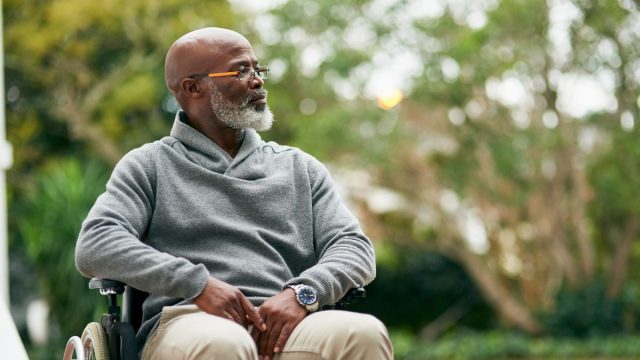Mitigating barriers to mental health services
Acknowledgements
This article is the second in a series aligned with PAN’s four-part Health Equity in Action webinar series, presented in partnership with CVS Specialty.
We thank Dr. Dara Richardson-Heron (she/her), physician, Fortune 100 leader, board director, patient advocate, transformative change agent and expert in her own right, for moderating all four webinars in the series. Dr. Dara set the stage by educating us on the principles of health equity, the root causes of health inequity, and why it all matters. Her work serves as the inspiration and the foundation for this blog series. We are grateful for her pioneering ideas, emphasis on cultural humility, and sharing practical tools and tips on advancing health equity in everyday practice.
We also thank Dr. Dustin Nowaskie (they/them), Founder and President of OutCare Health, and Vic Armstrong (he/him), Director of Soul Shop for Black Churches, for joining the second webinar in the series as guest expert panelists.
The complexities of mental healthcare
Mental health affects everyone
Despite the growing awareness and understanding of mental health issues, numerous barriers still prevent many people from accessing the critical services they need. From financial constraints, limited access to specialized care, cultural stigmas, and a lack of understanding, these barriers can significantly impede the well-being and recovery of those in need.
Addressing these barriers is crucial because mental health affects everyone. According to the National Institute of Mental Health, it’s estimated that more than one in five U.S. adults live with a mental illness, with varying degrees of severity. Whether directly or indirectly, each of us is touched by the impact of mental health issues within our families, workplaces, and communities. It is imperative to foster a society where accessing mental health services is not a privilege limited to a fortunate few but a readily available right for all.
And while mental illness is not the only risk factor for suicide, it is important to consider. According to the U.S. Centers for Disease Control and Prevention, in 2021, suicide rates increased overall in America. Most notable, however, is that rates were highest among American Indian and Alaska Native people and climbed significantly for Black and Hispanic people. These disparities must be addressed.
Navigating challenges for LGBTQ+ and Black individuals
LGBTQ+ and Black individuals often face significant systemic barriers when seeking mental healthcare. These barriers are rooted in societal inequalities, discriminatory practices, and systemic biases that compound the challenges these marginalized communities face.
Dr. Nowaskie emphasized the prevalence of prejudice, familial rejection, bullying, and stigmatization experienced by the LGBTQ community, resulting in higher rates of depression, anxiety, and suicidal ideation. The webinar underscored the urgency to prioritize LGBTQ-affirming mental health services, support networks, and resources to provide inclusive and empathetic care that caters to their specific needs, fosters resilience, and promotes overall mental well-being.
Vic Armstrong addressed the mental health challenges faced by Black individuals, highlighting how racism, inequality, and historical trauma contribute to higher rates of depression, anxiety, and PTSD. He emphasized the need for faith leaders to be equipped with the tools and knowledge to minister to individuals impacted by suicide effectively.
By fostering open conversations and challenging societal misconceptions, healthcare providers and advocates can create an environment where seeking mental health support is viewed as a sign of strength rather than weakness. Cultivating empathy, understanding, and acceptance will be key in reshaping how mental health is perceived and valued within our society.
Understanding mental healthcare access, inequities, and stigma
Our webinar series partner, CVS Specialty, commissioned a national poll to explore mental health awareness and access in the United States. The poll, which was fielded between April and June 2023, garnered nearly 6,000 responses from adults (18 and older) representing seven distinct populations, including:
- General population adults
- White adults
- Black adults
- Hispanic adults
- Asian American and Pacific Islander adults
- Native American adults
- LGBTQ+ adults
The survey sought to better understand the differences in barriers to mental health support among these populations, including access issues, types of care, perceptions within their communities, and the role of stigma.
Some key findings from the poll include:
- About half of the general population (47%) says they have previously considered counseling or treatment for a mental health condition. White (61%), Native American (57%), and LGBTQ adults (69%) are more likely than Black (43%), Asian American (34%), and Hispanic adults (48%) to say they have considered seeking counseling for a mental health condition and that they have spoken with a doctor. Additionally, they are more likely to say they have been screened and diagnosed with a mental health condition.
- Most adults across race/ethnicity and LGBTQ status say one-on-one therapy would be helpful for their mental health concerns. However, one-third (36%) of the general population says they have not previously accessed any of the tested resources for their mental health concerns. Black (41%) and Asian American adults (39%) are especially likely to say so.
- Regardless of race/ethnicity and LGBTQ status, adults say cost, stigma, and treatment availability are obstacles to seeking help or treatment for a mental health condition. About two-in-five adults in the general population say their family members (45%), friends (41%), work colleagues (40%), and acquaintances (39%) attach stigma to seeking treatment or help for mental health. A third (36%) of adults in the general population say their faith-based counselors or places of worship attach a stigma to having a mental health condition or seeking treatment.
5 tips to promote equitable mental healthcare access
- Reframe the narrative around mental health, especially with faith-based and other community leaders. Religious and community leaders hold immense influence and can play a pivotal role in shaping public perceptions and attitudes toward mental health. Engaging with these leaders and initiating conversations around mental health within faith-based communities or other community settings can reframe the narrative, eliminate stigma, and encourage understanding and support for those struggling with mental health issues.
- De-stigmatize conversations with patients and those with mental health issues and concerns by providing personal stories and experiences that explain or detail mental health journeys. Personal stories and experiences have the power to humanize mental health diagnoses and break down the walls of stigma. By openly sharing stories of resilience, recovery, and growth, we can create a safe space for individuals to discuss their mental health concerns without fear of judgment. Personal narratives help normalize the conversation and show that seeking help is a sign of strength, not weakness.
- Seek out affirming providers to build trust. Establishing trust is essential in mental healthcare. People from marginalized communities, such as LGBTQ+ individuals or other minority groups, may have unique needs and experiences that require culturally sensitive and affirming care. By actively seeking out knowledgeable and inclusive providers, especially those who reflect the identities of those they serve, we can ensure that individuals feel understood, valued, and supported throughout their mental health journey.
- Leverage community influencers as sources of truth, hope, and trust to assist in overcoming barriers to seeking treatment (e.g., faith-based leaders). Community influencers, including faith-based leaders, can be powerful advocates for mental healthcare access. By engaging these influencers in conversations about mental health and encouraging them to address the topic within their communities, we can help overcome cultural barriers and dispel misconceptions. Their endorsement and support can inspire individuals to seek treatment and navigate the healthcare system more confidently.
- Share resources and support groups that are available to those in need. Creating awareness about available mental health resources and support groups is crucial in promoting equitable access. We can connect individuals with the support they require by sharing information through various platforms, including social media, community centers, and educational institutions. Additionally, encouraging the development of local support networks and community-driven initiatives fosters an environment of shared understanding and assistance.
Moving forward on the path to equity
Access to mental healthcare is a fundamental right that should be available to all individuals, regardless of their background, identity, beliefs, or circumstances. Unfortunately, numerous barriers prevent many people from seeking the help they need—especially those from historically marginalized and underrepresented populations. Promoting equitable access to mental healthcare requires a collective effort to break down barriers and foster an inclusive and supportive society.
By reframing the narrative, destigmatizing conversations, affirming the identity of patients, leveraging community influencers, and sharing available resources, we can make significant strides toward ensuring that mental healthcare is accessible to all.


